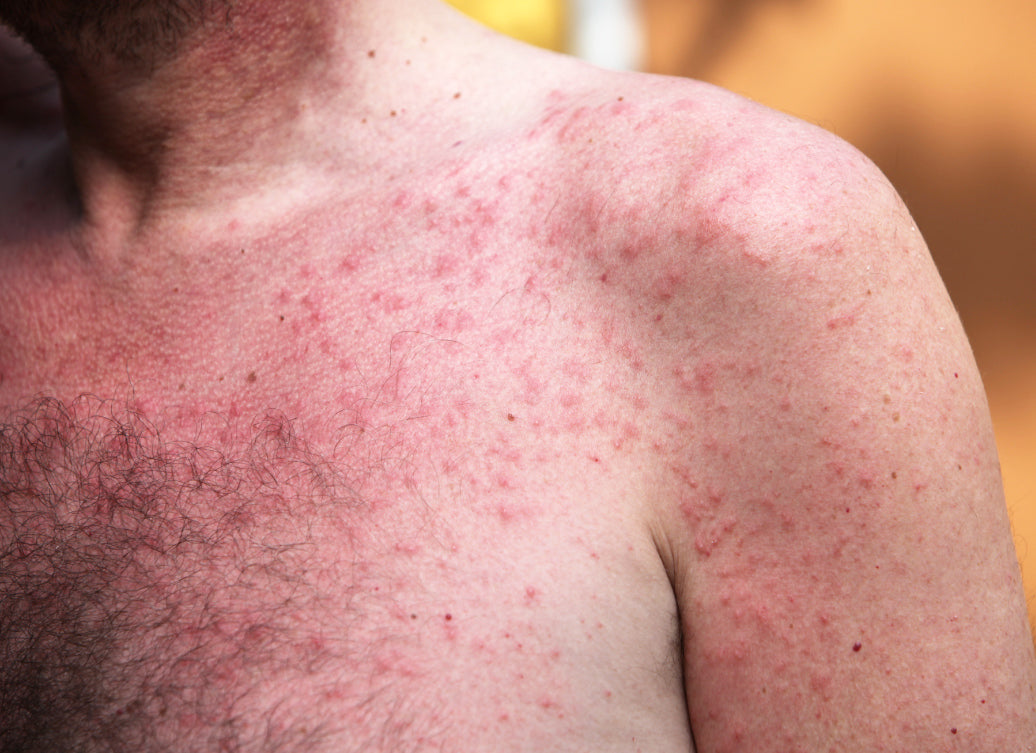Polymorphic light eruption (PMLE) is an odd skin condition with an odd name, but is it really as rare as it sounds?
Despite its serious-sounding name, and the fact that many people won’t have heard of the condition, PMLE is actually relatively common. Also known as prurigo aestivalis - summer itch - it is actually a widespread type of photosensitivity, with as many as 1 in 10 of the population experiencing the problem to some degree.
Polymorphic light eruption mostly affects pale-skinned young women aged 20-40, who live in countries which don’t get a lot of sunlight over the winter months; the classic PMLE situation is when someone whose skin has become unused to UV light breaks out in a rash the day she switches from long-sleeves to tee shirts on the first day of summer. Rashes of pimples, flushed skin or itchy hives generally appear on those parts of the body hidden under clothing during colder months: upper arms, legs, the V of the lower neck/upper chest.
Not everyone who gets PLME fits this demographic though, and the condition may be underdiagnosed in people of colour because they don’t fit the classic appearance of reddened areas on white skin.
It’s important to remember that although the majority of cases are mild, some people experience PMLE severely, and find themselves in debilitating pain and discomfort. While most rashes clear up within a few days, and recurrences don’t last very far into the summer, for a few unlucky sufferers the breakouts happen any time the UV or UVA light hits their skin, even through light clothes or a window.
In conclusion, PMLE is a common condition, although mostly a mild and temporary one. Some cases might be so mild that they’re brushed aside as a brief and unexplained rash that disappears as soon as it occurs.
For a comprehensive look at the different ways you can calm down PLME, see our blog How Is Polymorphic Light Eruption Treated?
You might find Balmonds emollients useful to help keep your itchy skin in good, healthy, resilient condition. Although creams and balms cannot ‘cure’ or treat the root cause of PMLE (or other chronic skin conditions), they are effective at providing hydration, locking in moisture, smoothing thickened areas, and keeping skin soft and supple.
Our products do not contain sunscreens! Do not apply oils or oil-based balms like Skin Salvation to exposed areas of skin in bright sunlight, as the oils can make the skin more likely to burn.
Recommended products:
Balmonds Cooling Cream
with shea, menthol, aloe vera & lavender
Balmonds Skin Salvation
with hemp and beeswax
